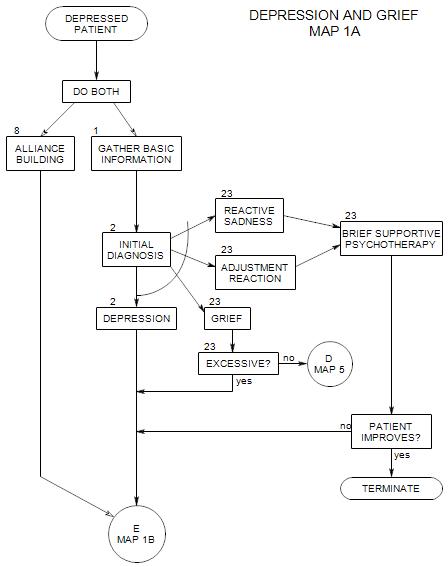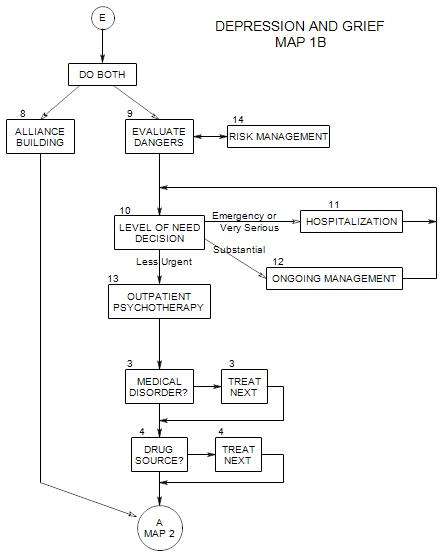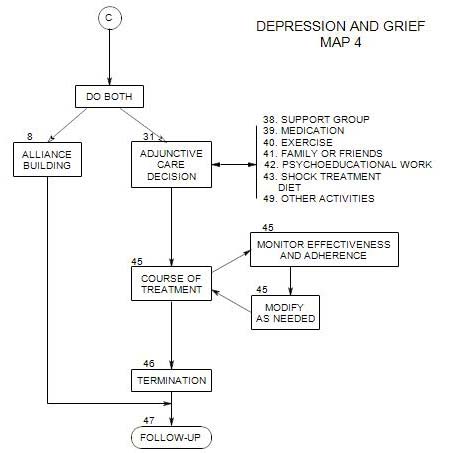DEPRESSION AND GRIEF MAPS: 1A | 1B | 2 | 3 | 4 | 5
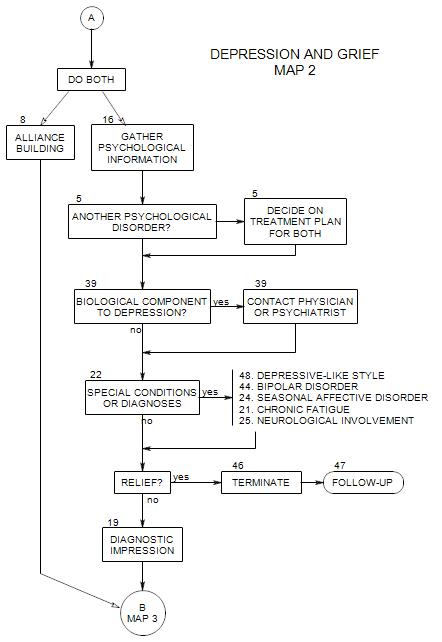
SECTIONS: 5 | 8 | 16 | 19 | 21 | 22 | 24 | 25 | 39 | 44 | 46 | 47 | 48

SECTIONS: 5 | 8 | 16 | 19 | 21 | 22 | 24 | 25 | 39 | 44 | 46 | 47 | 48
DEPRESSION AND GRIEF MAPS: 1A | 1B | 2 | 3 | 4 | 5
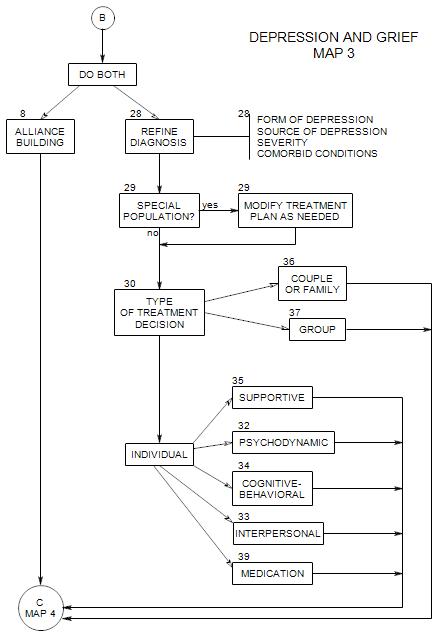
SECTIONS: 8 | 28 | 29 | 30 | 32 | 33 | 34 | 35 | 36 | 37 | 39

SECTIONS: 8 | 28 | 29 | 30 | 32 | 33 | 34 | 35 | 36 | 37 | 39
33. INTERPERSONAL PSYCHOTHERAPY
-
Follows from Section 30 on Map 3
Interpersonal psychotherapy focuses on the relationships among a person’s current interpersonal issues and depressive symptoms.
The premise that is explicitly presented to the patient is that his/her depression is a reaction to unresolved interpersonal conflicts, whether they are actual or internal. When those conflicts have been resolved, he/she will be freed to move on, and the depression will lift.
Four problems are of special concern in using this approach:
- The patient’s sense of abandonment and loss. If this is an issue, you can explore the patient’s feelings, especially guilt and anger, and evaluate them in the context of the behavior and apparent intentions of others that the person is reacting to.
- Conflicts about social roles, expectations, and obligations. Help the person clarify and resolve these and find a clear path to action and sense of worth.
- Social transitions, including divorce and job change. The patient may need help adjusting and adapting to losses and new circumstances.
- Lack of interpersonal contact. You can offer social skills training and explore the patient’s history with others.
Techniques include
- Help the person change his/her environment to meet his/her needs better.
- re-state patient’s complaints about others as fears to be examined.
- help the patient develop a friendship network.
